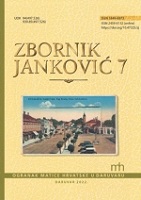The main interrelationship of Croatian-Hungarian political relations, from the Hungarian perspective, from 1990 to 2021
The main interrelationship of Croatian-Hungarian political relations, from the Hungarian perspective, from 1990 to 2021
Author(s): Lóránt BaliSubject(s): Diplomatic history, Political history, Transformation Period (1990 - 2010), Present Times (2010 - today)
Published by: Matica hrvatska Daruvar
Keywords: regime change; Croatia; Croatian-Hungarian relations; politics;
Summary/Abstract: With the break-up of the Soviet Union and the disintegration of its federation systems (Warsaw Pact, CSTO), the bipolar world system came to an end. In between – the western borders of Europe slowly but surely moved eastwards. After the change of regime, Hungary quickly recognised that Croatia could be a key partner in the pursuit of its geopolitical interests, as evidenced by the fact that it was one of the first countries to recognise its independence. The experience of historical coexistence from a common past was a significant factor in this. Over the past thirty years, Croatian-Hungarian relations have been balanced. They have been able to find appropriate solutions to common challenges that have arisen. The situation of national minorities is satisfactory. The Hungarian government’s approach to European domestic policy differs from that of Croatia. We insist more strongly on preserving our nation-state competences within the Union. The aim of this study is to present the developments of the last thirty years.
Journal: Zbornik Janković
- Issue Year: VI/2022
- Issue No: 7
- Page Range: 445-458
- Page Count: 14
- Language: English

